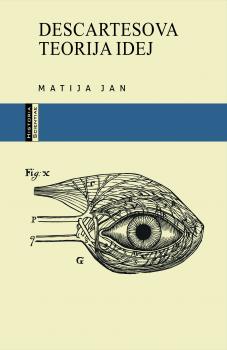Descartesova teorija idej
By defining ideas as the operations of finite minds, Descartes gave a modern psychological meaning to the term "idea" and distinguished himself from both the established Platonist conception of ideas and the early-modern materialisms. However, since Descartes wanted above all to justify a mechanistic philosophy of nature, we will not find in his texts a systematic account of the theory of ideas, but rather a scattered mass of statements about the nature of ideas, their distinctness and their origins.
Descartesova teorija idej ('Descartes' Theory of Ideas') is the first monograph in Slovenia to deal exclusively with Descartes' philosophy and its historical background. In the book, Matija Jan identifies three main problems of Descartes' theory of ideas and argues that the plurality of statements hides a consistent theory. In the first chapter, he shows that Descartes conceived of ideas as perceptions; in the second, the nature of the mechanisms by which perceptions are distinct or indistinct; and in the last, the nature of the mechanisms by which they are innate, adventious or created. In doing so, it does not neglect Descartes' relation to pre-existing theories. He shows that Descartes' theory of ideas, in contrast to the image of the early modern rationalist philosopher starting from conceptual zero, was especially indebted to late scholasticism.
Downloads

Series
License

This work is licensed under a Creative Commons Attribution-NonCommercial-NoDerivatives 4.0 International License.
